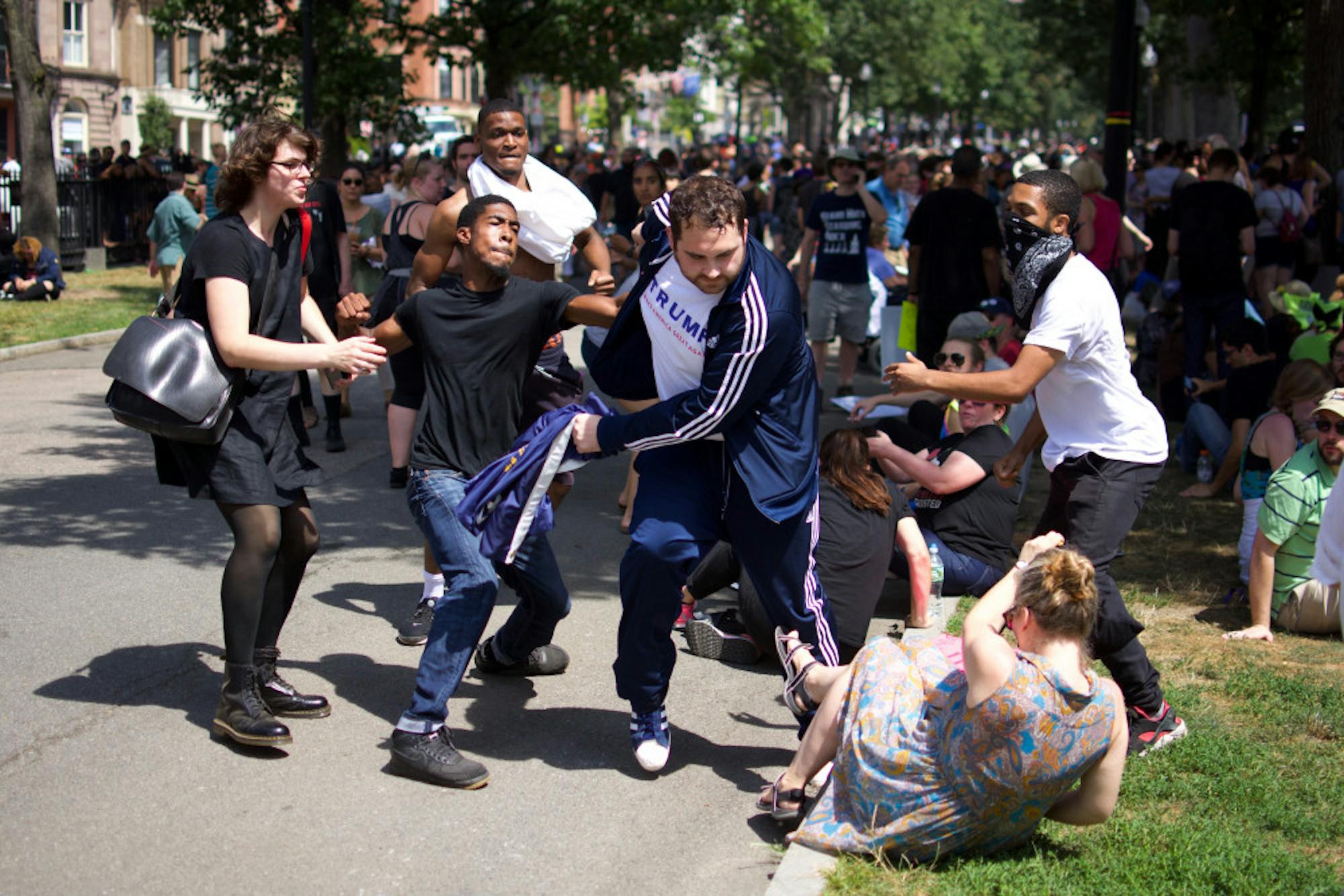Disclaimer: Nick Pfosi is a former associate editor at the Tufts Daily. He was not involved in the writing of this article.
Approximately 15,000 people marched through Boston Common on Saturday, Aug. 19, protesting a right-wing, “free speech” rally, according to PBS Newshour.
The protesters began their march in Roxbury, leaving from the Reggie Lewis Track and Athletic Center and walked approximately two miles to Boston Common, according to Ann-Marie Lee, a member of the Tufts Progressive Alliance (TPA) who participated in the rally.
According to the Facebook event, the rally was as a show of solidarity for “Black Lives, LGBTQI Lives, Indigenous Lives, Palestinian Lives, Cape Verde Lives, Latinx Lives, Jewish Lives and all who are marginalized ... [a] demand justice, [and] defiance of white supremacy.”
Due to the massive amount of people, it took almost five hours for the whole crowd to march from the Athletic Center to the Boston Common, said Lee, a sophomore.
The organizers of the massive mobilization — Monica Cannon-Grant, DiDi Rose, DiDi Delgado, Erynn Brook, Chanelle Helm and Rebecca Frederick — said on the Facebook event that Bostonians would march, not just to protest the conservative “free speech” rally, but also in resistance to white supremacy across the country.
The Facebook description cited solidarity with events and protests in Charlottesville, Va.; Flint, Mich.; Ferguson, Mo.; Baltimore, Md.; Charleston, S.C.; Standing Rock; "Palestine, and communities of color across the globe."
The march was largely peaceful, according to PBS. Nonetheless, there were several arrests of anti-white supremacist protesters and conservative inciters, according to both Nicole Joseph, a senior, and Nick Pfosi (LA ’16), who both attended the rally.
Nate Krinsky, the president of TPA, also attended the rally and described how incredible the turnout of the rally was.
“We were amazed by how many people came out to protest white supremacy and tell the alt-right that they were not welcome here,” Krinsky said. “After their acts of intimidation in Charlottesville it was incredibly important to not be silent, which would only allow the white supremacist movement to continue to grow."
Krinsky, a junior, explained that TPA will support other efforts like this in the future.
"Only through large mobilizations like what we saw yesterday can we beat back against the seeds of fascism and begin to undo the racist systems of oppression that have plagued our country since its founding," he said. "Over the coming year, TPA will continue to support direct actions like yesterday's march where and when they occur."
Lee also reported an extreme sense of solidarity and support at the rally, and noted that she saw many representatives of organizations dedicated to uplifting marginalized voices at the rally, including, Asian Pacific Islanders for Black Lives Matter, Chinese Progressive Association, Vida Urbana Housing Justice, Boston Socialist Alternative and clergy from many different faith backgrounds.
Joseph agreed the large counter-protester turnout was powerful but expressed frustration at the behavior of the police.
“The police presence was really intense and what they did was just protect the white supremacist protesters,” Joseph said.
Joseph reported seeing police in riot gear escorting white supremacists out of the common and felt police were generally hesitant to arrest inciters while counter protesters were often arrested for minor offenses.
“It was just another time when it was really clear who [the police] protected and who they served,” Joseph said.
Event organizers noted that demonstrations by white nationalist and white supremacists have been increasing in frequency under the new administration.
“As we have seen with the events in Charlottesville and around the country, white nationalists are emboldened by the current political administration and growing police state,” the organizers wrote in the event description on Facebook. “Rallies and marches organized by white supremacists are more prevalent than in recent years, and — as always — it is the most marginalized who are left vulnerable.”
CORRECTION: A previous version of this article listed the Standing Rock Reservation in Arkansas, when it is actually in the Dakotas. The article has been updated to reflect this change. The Daily regrets this error.
Tufts students participate in massive protest against white supremacy






